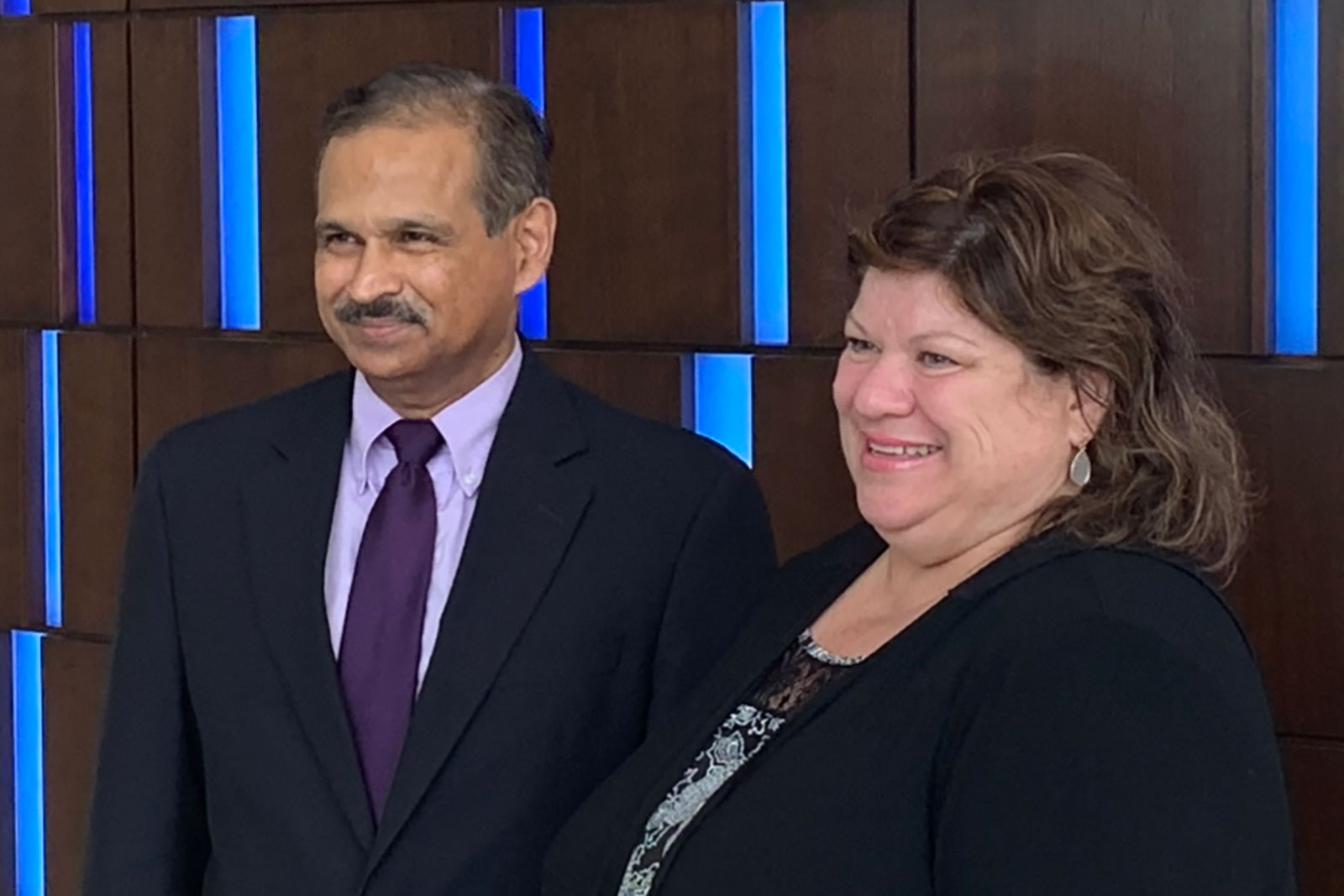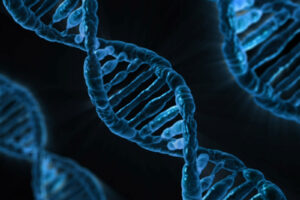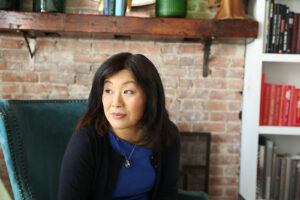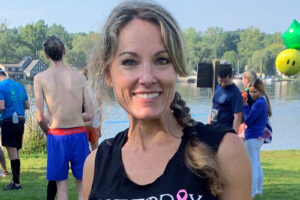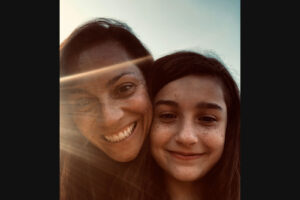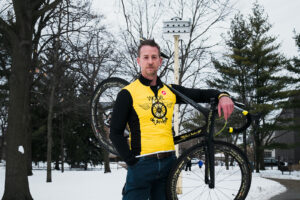“I was at work in the cafeteria, and I fell,” begins Diane Hura. She was rushed to the hospital for dizziness, but then received a diagnosis of stage IV lung cancer that had metastasized to her brain. She was sent for emergency surgery, where surgeons removed a golf ball-sized tumor from her brain. “I never had a headache or vision problems — nothing. I was shocked,” says Hura.
She was only 56 years old, busy enough in her career as a public health researcher for Henry Ford Health and a professional singer and flute player. And, due to the pandemic, she would have to grapple with this news virtually. The hospital assigned her an oncologist, and they met for the first time over a video call.
“[I was] sitting there with my daughter and my husband and [the oncologist] said, ‘You have stage IV [lung cancer]; it’s incurable,’” Hura says. “All I could think of was that I was going to die. I looked at my daughter and said, ‘You’re going to have to take care of your dad.’”
Hura would eventually find out her lung cancer was “ALK-positive.” According to the American Lung Association, ALK, or anaplastic lymphoma kinase, is a gene present in embryos that helps the development of the gut and nervous system. It gets turned off when the embryo is still in the womb, but for some individuals, it can turn back on and fuse with another gene. This gene change, called an ALK fusion or ALK rearrangement, can cause cancer. Only about four percent of all lung cancers are ALK-positive. These patients tend to be younger than the average lung cancer patient, with no history of smoking.
“I’m thinking, what’s that? I know nothing,” says Hura. “I had to focus and process what was going on fast because I’m my own advocate, and no one was going to be an advocate for me.” She learned all she could about ALK-positive lung cancer and what her options were. Along the way and through many online conversations with other ALK-positive lung cancer warriors, she heard about Dr. Shirish Gadgeel, chief of hematology and oncology at Henry Ford Cancer Institute, a division of Henry Ford Health – Hura’s place of employment.
“I saw Dr. Gadgeel because I had heard about him, and he specializes in the ALK gene. I went to see him, and I loved him right off the bat,” says Hura. “I was so mesmerized by him, because when I left his office, he made me feel like I was going to live forever. There was no doubt in his mind that I was going to live and be just fine.”
I had to focus and process what was going on fast because I’m my own advocate, and no one was going to be an advocate for me.
Hura had been treated with multiple rounds of chemotherapy, radiation and surgery before Gadgeel put her on an ALK-inhibitor pill called alectinib in July 2020. “I was among the few investigators that participated in the phase-one study of alectinib,” explains Gadgeel. “This drug [also] got approved for phases two and three. To go through this journey of participating in all those trials with this drug, and now that drug is the standard of care, is very exciting.”
ALK-inhibitor drugs such as alectinib will often only work for up to two years before the cancer is likely to evolve, according to the American Lung Association. After that, the ALK-inhibitor will stop working, and alternative treatments must be explored, such as prescribing another ALK-inhibitor, increasing the dose of the current ALK-inhibitor, or radiation and chemotherapy.
Gadgeel is aware of the fear patients may feel about treatment that historically only works for a couple years, stopping the cancer from spreading without actually curing it. “What I feel [is] the most important part as an oncologist is ensuring that you communicate the information to the patient in a way that they can understand,” says Gadgeel. “It’s about being sure that you are communicating with somebody who’s not a doctor, who’s not a healthcare provider. I don’t want to give them false hope, but I really believe that when you’re dealing with a difficult [situation], you have to have a level of hope. Otherwise [it’s] very difficult to go to scans and take pills daily and get blood tests if you don’t have an expectation that there is a chance you’re going to do well and lead a good life.”
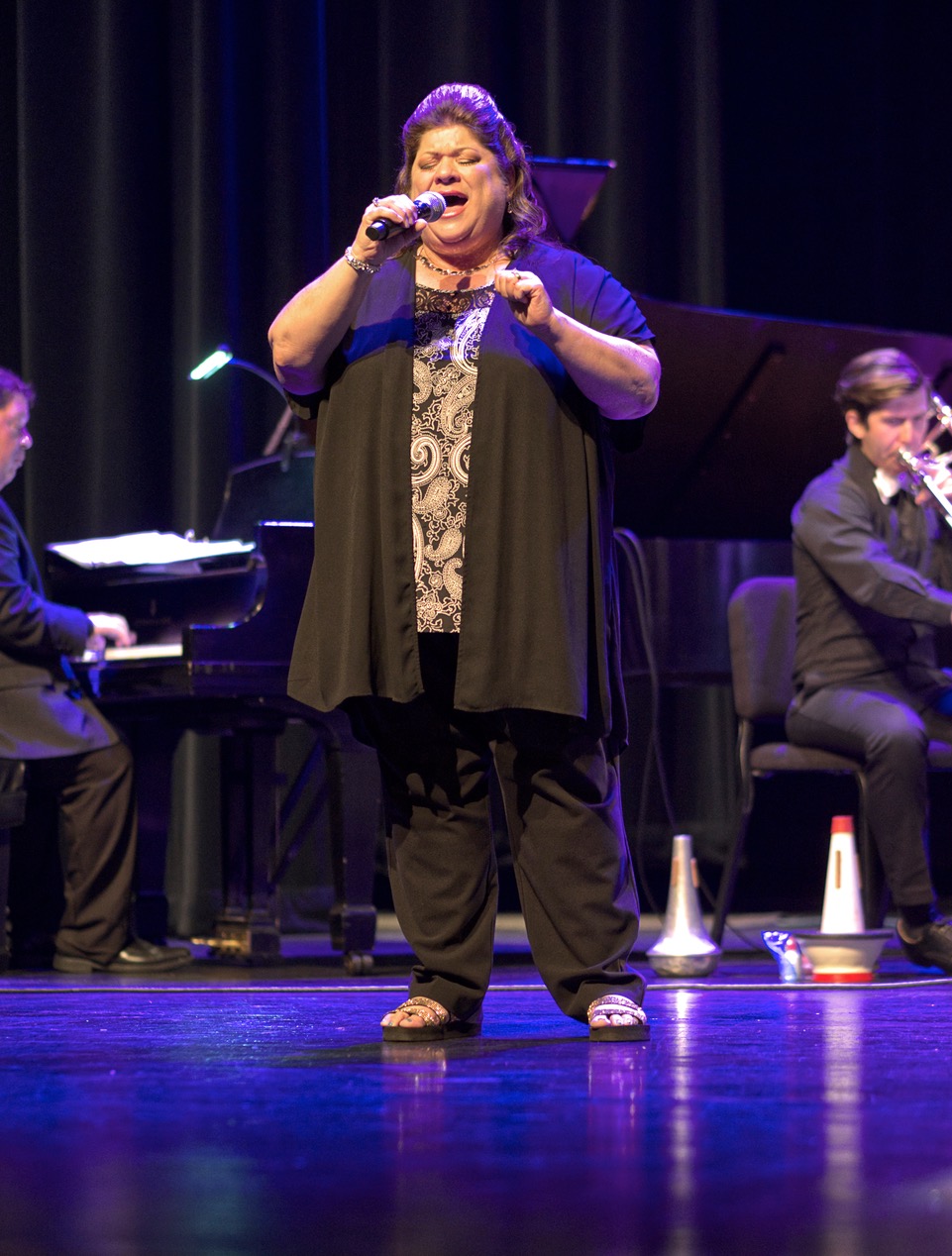
Hura has that fear, too. She compares life with cancer as “having a wrecking ball over my head,” never knowing when it’s going to fall, and finding out the cancer has spread. However, she also stresses her gratitude to Henry Ford and Gadgeel for providing her with hope. “These drugs that they have now, these targeted therapy pills, they’re keeping me alive. Who knew that this would ever be available to anybody? It’s amazing because I should’ve been dead six months after they found [the cancer]. Here I am going on my third year of survival, and I just want everyone else to know that there’s hope out there,” Hura says.
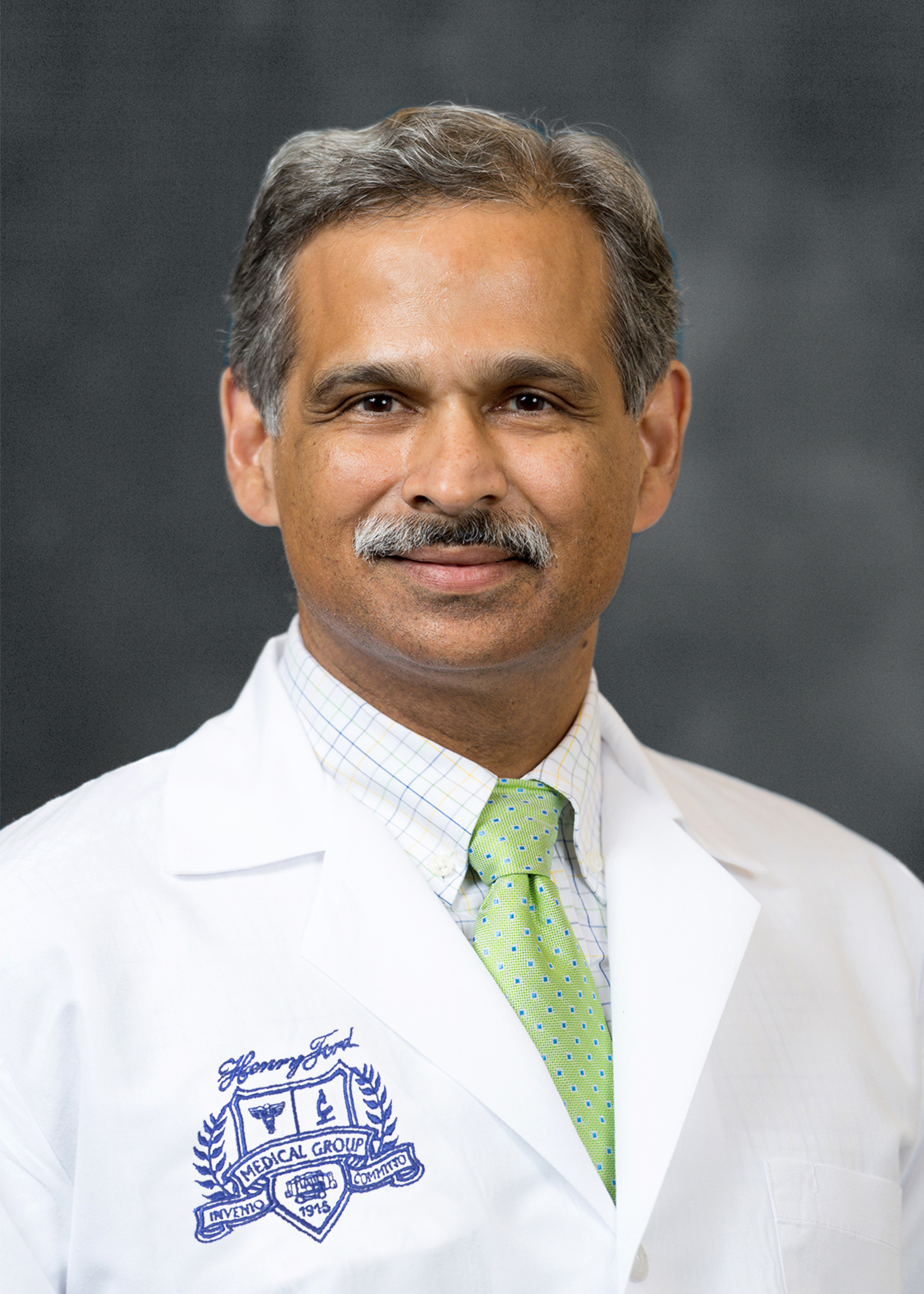
Hura wants every cancer warrior to advocate for themselves; her research into her specific type of lung cancer is what led her to Dr. Gadgeel, who provided her with life-saving medicine. “Knowledge is power, so you’ve got to learn what’s going on and how to help it,” she says. “You have to be the one to find the answers.”

